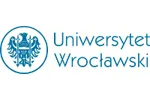

| The award | How you will study | Study duration | Course start | Domestic course fees | International course fees |
|---|---|---|---|---|---|
| Master Degree | Full-time | 2 years | October | EUR 2000 per year | EUR 3200 per year |
The public history program is addressed to all the BA graduates, not only in history, and even not only in the humanities, who would like to conduct the research about and promote the public uses of history. Public history has been operating since the 1970s as a subdiscpline of history, but also as a separate academic discipline. It is called the history "for the people, by the people, with the people, of the people" and deals with all the aspects of history outside the formal education (also academic education). It operates for many years at the universities world-wide and enjoys considerable popularity among the students.
The history itself concentrates on examining the past (aiming at answering the question "how was it there?") while public history conducts research on how the knowledge about the past is present in the social consciousness and how it is (and may be) instilled in this consciousness, with the central question of "what do (did/will) the people know about how it was?" It focuses on the historical memory, which is rather marginal in the "traditional" history research. The courses from the public history program concentrate on the ways of shaping the historical consciousness (or collective memory) - both in the context of its theoretical framework and mechanism (including e.g. politics of history) and in various practical ways (tools/techniques) of influencing this memory and consciousness, starting from collecting and processing the testimonies of the past, through speech-writing and preparing other texts promoting the historical knowledge, exhibitions, historical installations, to locating historical elements in mass media, entertainment or in virtual environment in its broadest sense. This is why even the general chronological overview of the past, which is placed in the public history curriculum, concentrates on the elements (phenomena, events, processes, individuals) that evoke debates and controversies - i.e. are present in the public sphere - and does not repeat the traditional academic history curriculum.
A public history graduate will have knowledge about the ways the knowledge about the past is present in the public sphere and the methods of influencing those ways. He/she will be able to collect, preserve, process and promote the heritage of the past in the conscious and competent way and to research how the others do that.
These competences will bring him to employment in the institutions engaged in preserving, forming and propagating the memory of the past and involved in the areas of:
1) the politics of history - political parties, local governments, societies, governmental agencies and other state institutions
2) extracurricular history education - libraries, local and national institutions of education
3) combination of history and art history - museums, open-air museums, creative art groups and companies (e.g. as experts of historical movies, games, events)
4) combination of history and media (publishing houses, press, new media, webpages, thematic TV channels)
5) archive management and oral history (private people, local government)
6) international cooperation (e.g. European institutions)
Graduates will also have an option to continue their education at the PhD programs in the humanities.
Below are some suggested courses at other providers that you may also be interested in:
Luxury Fashion Branding & Consumer Experience Short Course, Winter School
ESSCA School of Management – Online Programs
Find out moreBachelor of Business Administration BBA
University of Applied Sciences Europe - Amsterdam
Find out moreIf you do not meet the entry requirements for this course then consider one of these postgraduate preparation courses from another institution:
Graduate Diploma of Engineering (Electrical Systems)
Engineering Institute of Technology
Find out moreGraduate Diploma in Law/Common Professional Examination GDL/CPE
Northumbria University Newcastle
Find out moreThere are 28 other courses listed from University of Wroclaw. A selection of these are displayed below:
Bachelor of Business and Administration, Business Bachelor Degree
University of Wroclaw
Find out moreBachelor of Business and Administration, Finance Bachelor Degree
University of Wroclaw
Find out moreBachelor of Business and Administration, Governance Bachelor Degree
University of Wroclaw
Find out more